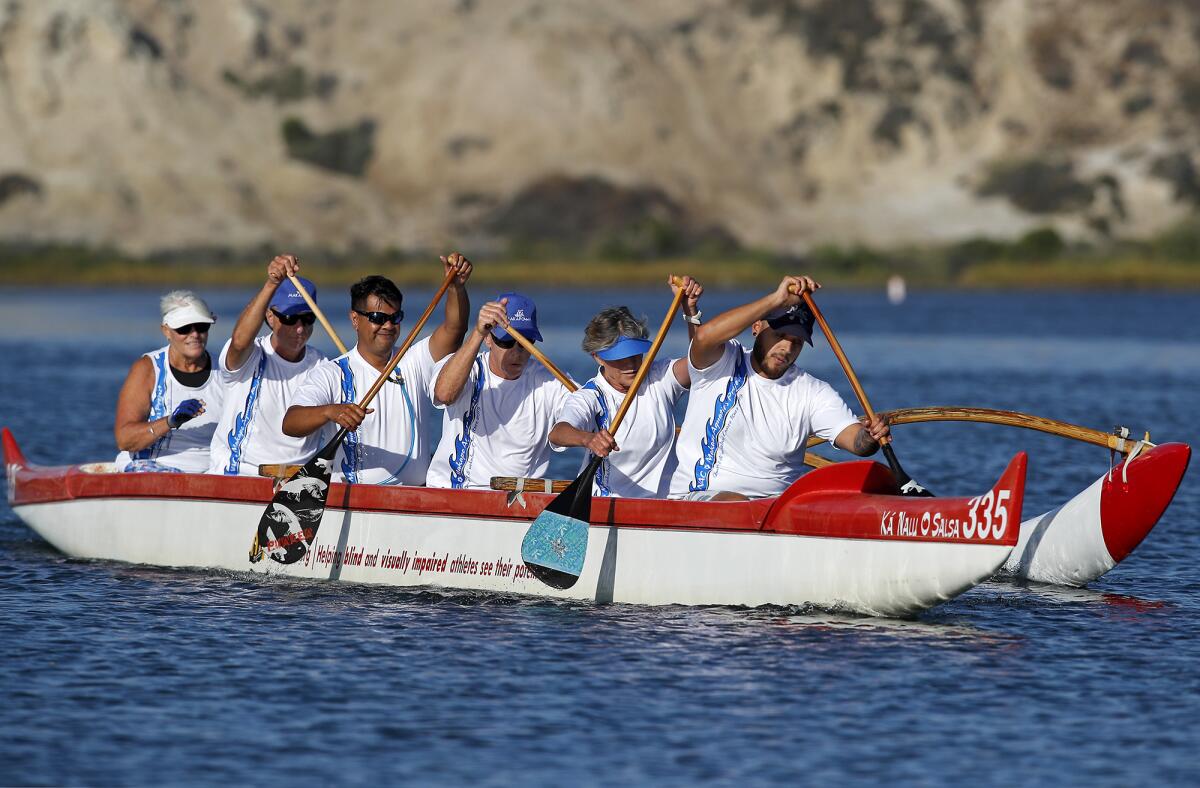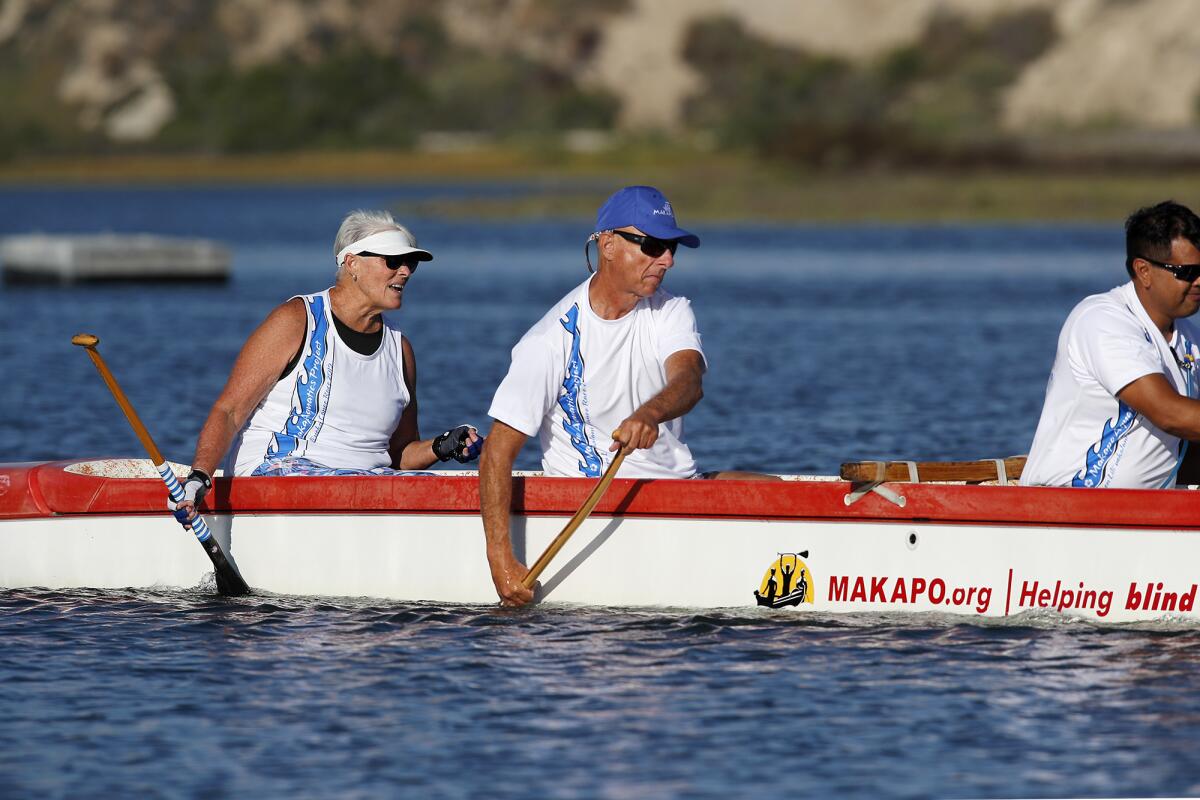Local blind paddlers get set for world’s largest outrigger canoe race

- Share via
At first, Mark Resor just wanted to finish the Queen Lili’uokalani Canoe Race’s strenuous 18-mile course in the open Pacific off the west coast of Hawaii’s Big Island on Saturday. Now, as race day draws closer, his focus is on doing well when he and his teammates hit the water.
Resor said he wants the respect of his teammates on the NAC/Makapo Outrigger Team, many of whom, like him, feel the motion and power of the boat and sea but don’t see the fine details of their surroundings.
Resor, 68, is part of a group of paddlers competing under the flag of the Newport Aquatic Center that will be the only predominantly blind team at the event, touted as the largest outrigger canoe race in the world.
“Makapō” is Hawaiian for “dark-sighted” — blind — and the nonprofit Makapo Aquatics Project, in association with NAC, offers outrigger canoeing to paddlers of varying ages, cognitive and physical limitations and competitiveness with the help of volunteers and donations.
The NAC/Makapo Outrigger Team brings four visually impaired men and two sighted teammates together in one boat. The team has already competed in four shorter races around Southern California this season. One of the sighted paddlers is the steersman, acting as a rudder on courses filled with the narrow, 40-foot-long boats and their lateral support floats. The other helps set the cadence.
The visually impaired paddlers, with little or no eyesight and no modified equipment, have a finely tuned “feel” for the boat and an ability to dip their paddles in unison, which is necessary for momentum. Success is not possible without the synchrony.
“It’s a rare thing where being visually impaired can be an advantage,” said RJ De Rama, a team veteran.

De Rama, of Irvine, co-founded the Makapo Aquatics Project at NAC in 2006. He’s been on several trips with the local outrigger team to the Queen Lili’uokalani Canoe Race, named for Hawaii’s last sovereign monarch.
De Rama introduced the Polynesian heritage sport to Resor at a blind men’s support group, and Resor introduced it to his brother, Chuck Dill, 60. The brothers, non-athletes for most of their lives, began paddling in earnest last year.
Both lost their vision in adulthood to a rare genetic eye condition called choroideremia. They have always been close but said paddling has strengthened their relationship. For Dill, it offered a new purpose after the death of his husband.
The brothers take a shuttle bus from their shared home in Cypress to Newport Beach for training and fellowship on and off the calm bay shore of NAC’s North Star Beach.
Toni Bushong, an accomplished competitor and the team’s sighted volunteer head coach, drives to Newport from Oceanside, about an hour each way, to prepare her squad. In addition to De Rama, Resor and Dill, the team includes Efrain Becerra Jr. and Suzanne Rouland (who is sighted), setting the pace in the front two seats, and competition steersman Rob Octavio.
Bushong said her goal is to finish in the top half this weekend.
About 200 boats competed last year in the 18-mile race. Top finishers usually need about two hours to cover the course from Kailua-Kona to Honaunau. It is the longest in the Queen Lili’uokalani Canoe Race’s series of canoeing and paddleboarding contests that draws about 2,500 athletes to the island.

Before the NAC/Makapo crew’s final practice Monday, where Bushong sat as the steersman, she said the paddlers were trained and ready. Their ability to coalesce is their strength, she said.
“That’s how paddling is,” Bushong said. “It just happens.”
All the latest on Orange County from Orange County.
Get our free TimesOC newsletter.
You may occasionally receive promotional content from the Daily Pilot.




